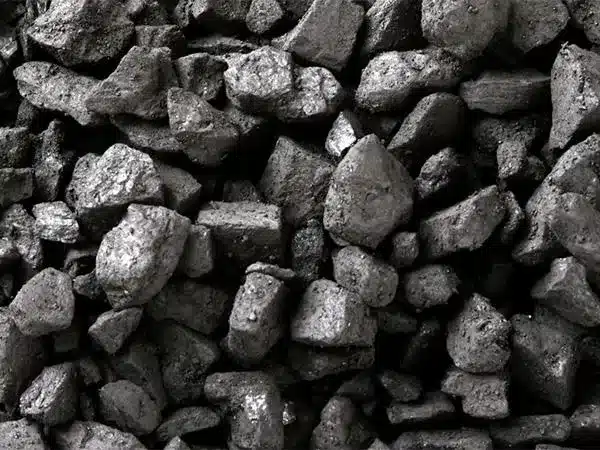About Coking Coal:
- Metallurgical coal, also known as met and coking coal, is a naturally occurring sedimentary rock found within the earth’s crust.
- It typically contains more carbon, less ash, and less moisture than thermal coal, which is used for electricity generation.
- It is an essential ingredient in the production of steel, making it one of the most widely used building materials on earth.
- It is a bituminous coal with a suitable quality that allows the production of metallurgical coke, or simply named coke.
- Coke is the main product of the high-temperature carbonisation of coking coal.
- It is an essential input material in steelmaking as it is used to produce pig iron in blast furnaces, acting as the reducing agent of iron ore and as the support of the furnace charge.
- It takes around 770 kilograms of coal to make one ton of steel, with approximately 70 percent of global steel produced in basic oxygen blast furnaces.
- The largest producers of coking coal were China (676 million tons in 2022-62%), Australia (169 million tons in 2022-15%), Russia (96 million tons in 2022-9%), USA (55 million tons-5%), and Canada (34 million tons-3%).
Q1: What is pig iron?
Pig iron is an intermediate product and first product of Iron making reduced from Iron ore. Pig iron has a very high carbon content, typically 3.5–4.5%, along with silica, Manganese, Sulphur, Phosphorus, Titanium and other trace elements. It is obtained directly from the blast furnace and cast in molds.
Last updated on June, 2025
→ UPSC Notification 2025 was released on 22nd January 2025.
→ UPSC Prelims Result 2025 is out now for the CSE held on 25 May 2025.
→ UPSC Prelims Question Paper 2025 and Unofficial Prelims Answer Key 2025 are available now.
→ UPSC Calendar 2026 is released on 15th May, 2025.
→ The UPSC Vacancy 2025 were released 1129, out of which 979 were for UPSC CSE and remaining 150 are for UPSC IFoS.
→ UPSC Mains 2025 will be conducted on 22nd August 2025.
→ UPSC Prelims 2026 will be conducted on 24th May, 2026 & UPSC Mains 2026 will be conducted on 21st August 2026.
→ The UPSC Selection Process is of 3 stages-Prelims, Mains and Interview.
→ UPSC Result 2024 is released with latest UPSC Marksheet 2024. Check Now!
→ UPSC Toppers List 2024 is released now. Shakti Dubey is UPSC AIR 1 2024 Topper.
→ Also check Best IAS Coaching in Delhi
























